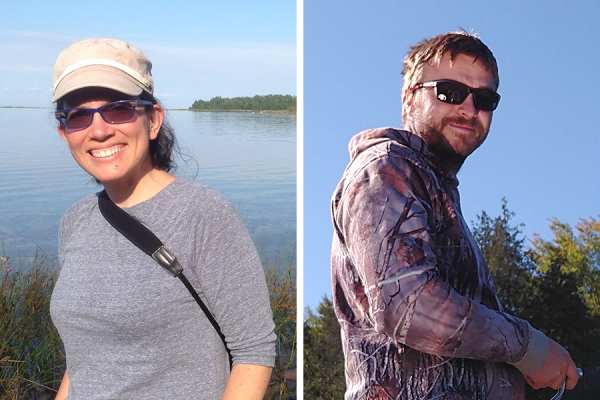
Appointments to increase research capacity in Faculty of Science Christina Semeniuk and Drew Marquardt are the inaugural Faculty of Science Research Chairs. The new two-year research chair program is designed to increase research funding and capacity in the faculty by growing existing research programs, fostering new partnerships and directions, and supporting outstanding faculty researchers. Dr. Semeniuk is an integrative biology associate professor and researcher with the Great Lakes Institute of Environmental Research (GLIER). She will focus on learning more about how fish species are coping and adapting to the rising temperatures caused by climate change. “I’ll engage with government, non-government organizations, and Indigenous communities to focus on the big questions arising from rapid ecological change,” says Semeniuk. “First: how does behavioural flexibility mediate an individual’s ability to persist in situ or shift to more suitable habitat, and second: how do these behavioural traits integrate with underlying physiological or…
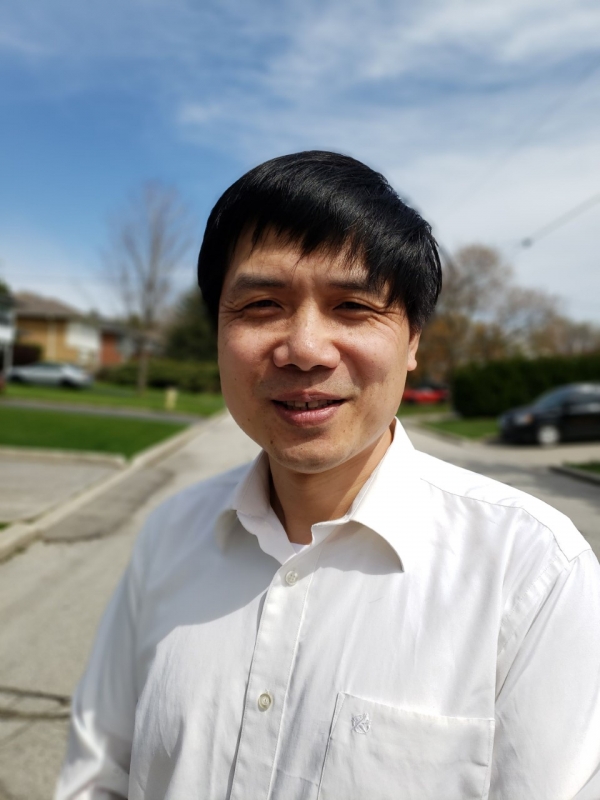
Federal COVID research funding responds to Windsor-Essex’s unique location, population Biochemistry professor Yufeng Tong and team have received CIHR funding to tackle new ways of fighting COVID and variants A team of UWindsor professors developing novel ways to detect COVID and limit the spread of its variants has been awarded $500,000 from a federal agency that funds health research. The Canadian Institutes of Health Research (CIHR), recognizing Windsor and Essex County can offer advance warning of spikes in infection rates by virtue of its location, is funding a team of researchers led by biochemistry professor Yufeng Tong. Dr. Tong, together with biochemistry professor Kenneth Ng, biomedical sciences professor Lisa Porter, psychology professor Kendall Soucie, and Mike McKay, executive director of the Great Lakes Institute for Environmental Research, will collaborate on the project to tackle COVID from multiple fronts. “Windsor-Essex sits at one of the busiest border crossings between the USA and Canada and is located at the heart of intensive year-round agricultural…
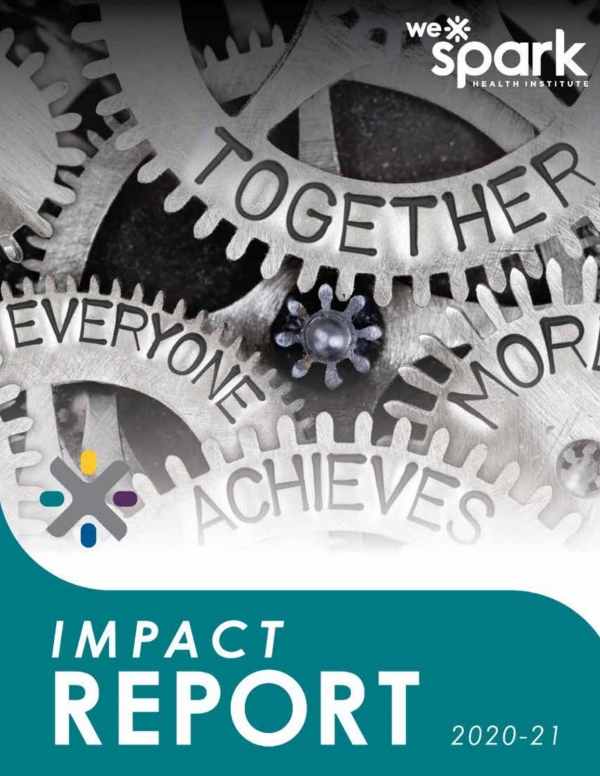
WE-SPARK Annual report shows growth Annual Report Shows WE-SPARK Growth WE-SPARK Health Institute has released its second annual report indicating the Windsor-Essex research community continues to achieve more together. “WE-SPARK accelerates and strengthens collaborations, and provides tools and resources needed for health research across Windsor-Essex to excel,” said Lisa Porter, WE-SPARK Executive Director. “Despite the challenges that the global pandemic placed on all of our members, with a particular strain on our hospital partners caring for those who fell ill during this difficult time, we are proud of how our region came together to move health research forward.” WE-SPARK began its second year with 146 members with membership growing to 677 in a single year. Other highlights include: $8,881,856 in external funding – an annual increase of 44%; $340,000 to local research projects; 1,335 patients / participants involved in research. The full report is available here. WE-SPARK Health Institute is supported…
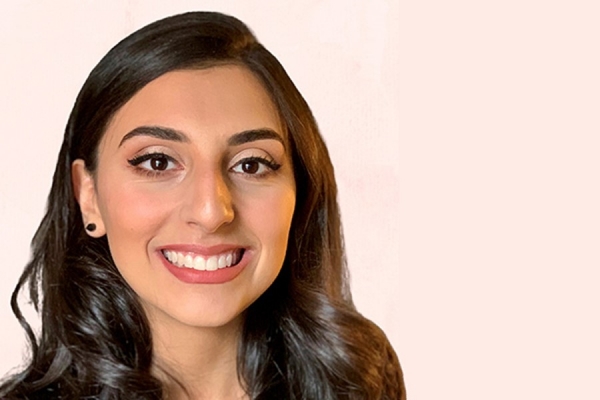
Student wins support for work on psychological interventions in chronic health conditions UWindsor psychology student Jasmine Kobrosli has received a $5,000 scholarship from Crohn’s and Colitis Canada. A $5,000 scholarship from Crohn’s and Colitis Canada will enable UWindsor student Jasmine Kobrosli further her work examining the psychological effects of inflammatory bowel disease. Kobrosli, entering her fourth year of undergraduate study, has lived experience with IBD: she was diagnosed with ulcerative colitis in 2013 and Crohn’s disease in 2018. “I was diagnosed with ulcerative colitis during my final year of high school,” she says. “Since my illness was so severe at the time, my university career was delayed.” After regaining her health, she enrolled at the University in 2018. “I had always planned to study psychology, but since being diagnosed with both ulcerative colitis and Crohn’s disease, I have been inspired to conduct research that will have a meaningful impact on the inflammatory bowel disease community by tying my love of psychology into the…
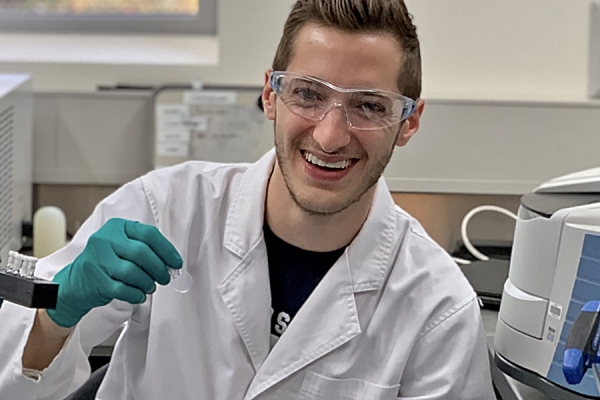
Award to fund doctoral research into e-cigarettes PhD student Mitchell DiPasquale is using synthetic membranes to study the physical effects of vaping and e-cigarettes. Mitchell DiPasquale (BSc 2017) is taking the health debate surrounding vaping and e-cigarettes down to the molecular level. E-cigarette or Vaping use-Associated Lung Injury (EVALI) can range from shortness of breath to severe lung damage requiring intensive care. DiPasquale, a doctoral candidate in chemistry and biochemistry, is using synthetic membranes to study the physical effects of EVALI. For this research he was awarded the Frederick Banting and Charles Best Canada Graduate Scholarships Doctoral Award from the Canadian Institutes of Health Research (CIHR). The award provides special recognition and support to students who are pursuing a doctoral degree in a health-related field in Canada. “Little is known about what causes EVALI, but evidence suggests it may stem from a physical interaction between toxicants in the vape and the pulmonary surfactant — a thin…
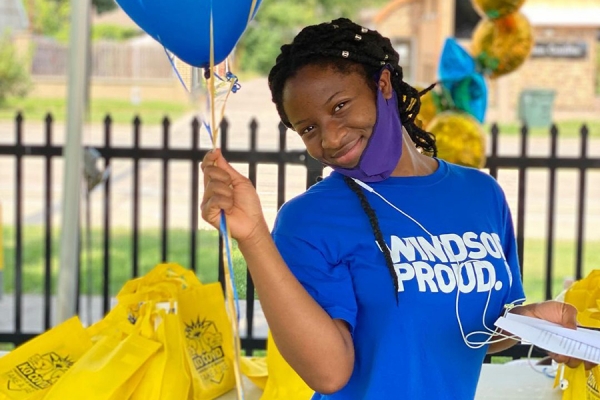
Return to normal drives contestants to vaccinate Master of management student Nfiya Osaroedey got vaccinated at a public clinic on campus Aug. 24. Second-year nursing student Andrew Hebert is ready for the pandemic to be over. “I decided to get my COVID-19 vaccine because it brings us one step closer towards being able to live a normal life again,” he says. “By getting my vaccine, I have done my part and taken my jab in beating COVID-19.” Hebert is one of this week’s winners in the Get Social about the Jab to Win! contest. He will receive a tuition voucher or Amazon e-card worth $500, as will computer science major Gabriela Peralta Milla, biomedical sciences student Timothy Igbokwe, and Linda Nguyen, a first-year student of behaviour, cognition, and neuroscience. “I believe getting the COVID-19 vaccine to reduce the risk of not only my family members who are immunocompromised but also the people that I take care of, is part of my responsibility as a healthcare worker,” Nguyen says. Five additional entrants won a #TakeAJabUWindsor…

Researchers seeking participants for COVID-19 survey A team of UWindsor health researchers is looking for volunteers to participate in a survey called Student, Faculty, and Staff Perceptions of On-campus COVID-19 Testing, Return to Campus, and Vaccination Hesitancy. “The purpose of the survey is to gather insights from the University of Windsor student, faculty, and staff population to inform effective campus health messaging,” says lead researcher Kendall Soucie, an assistant professor in the Department of Psychology. “Another key objective is to determine common perceived barriers and facilitators to weekly COVID-19 screening procedures.” The survey is a collaboration between WE-Spark Health Institute’s project “Students Igniting Vaccine Confidence Program in Windsor-Essex” and its COVID Screening Platform. Dr. Soucie says the team aims to determine factors and barriers to getting vaccinated and critical demographics that will need to be targeted. “Consideration of this data may highlight opportunities to increase voluntary…
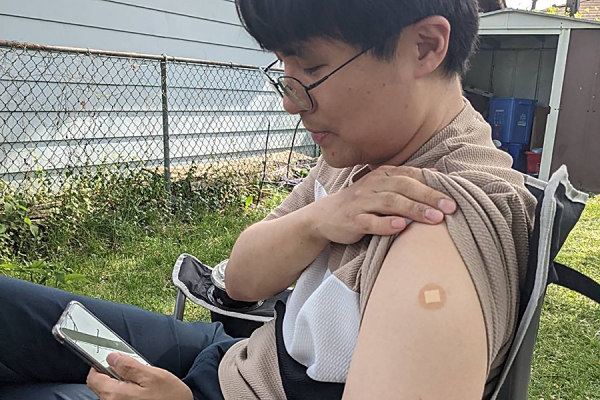
Winners share motivation for vaccination PhD student Haesung Ahn shows off the site of his vaccination against COVID-19. Protecting themselves and others from the coronavirus and hoping to speed social recovery from the pandemic are the most common reasons cited for getting vaccinated by the first week’s winners of the Get Social about the Jab to Win! contest. Typical was first-year psychology major Paige Sajtovich. “I got my vaccine to protect myself and especially others who are more vulnerable than I am in the community,” she posted to her personal Facebook page. “I want us all to be able to enjoy the things we used to enjoy again. We are all in this together.” Haesung Ahn, a doctoral candidate in civil engineering, told his Instagram followers he misses previous normal student life. “I got my vaccine,” Ahn added. “I think it could be the most effective way to prevent spreading the virus.” Sajtovich and Ahn are among five initial winners who will receive a #TakeAJabUWindsor T-shirt, a $10 Tim Horton’s…
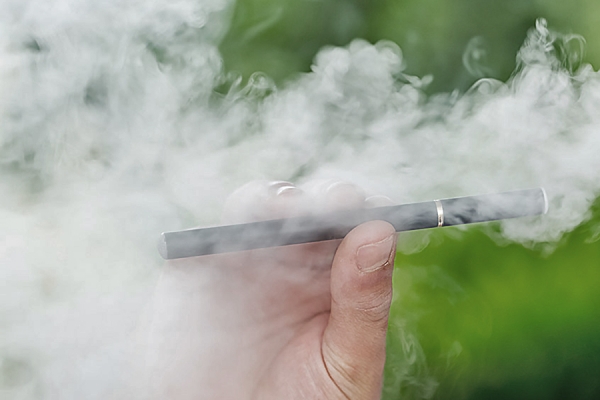
Researcher investigates safety of vaping ingredients UWindsor professor Drew Marquardt says his research will help pinpoint which ingredients found in vapes and e-cigarettes are contributing to severe lung illness in users. His project “Vaping-Associated Lung Injury: Insight into Mechanisms of Action” received $15,000 as part of the Breathing as One Young Investigators Research Award, a Canadian Lung Association program led by the Lung Health Foundation. “Lung injury from vaping was established as an epidemic mere months before the COVID pandemic struck and since then has largely flown under the radar,” says Dr. Marquardt, assistant professor in the Department of Chemistry and Biochemistry, cross-appointed to the Department of Physics. “Yet there’s been a surge in young people aged 18 to 30 who are vaping and a large number of them are getting sick, so we are interested in how ingredients like Vitamin E acetate interact with the lungs, contributing to this dangerous alveolar, or lung, injury.” Marquardt and his team are investigating…











